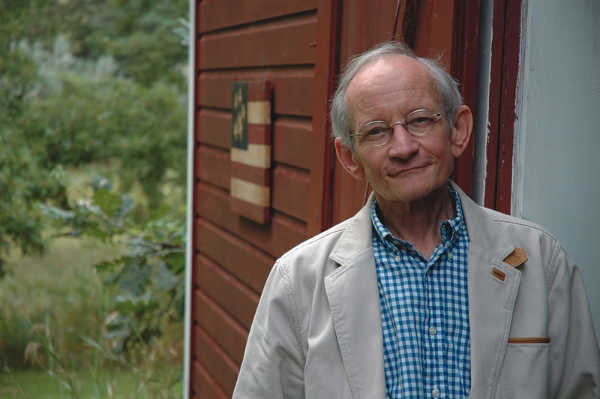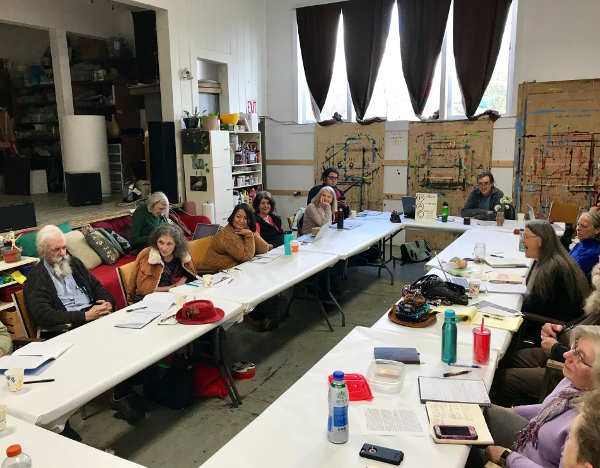- Tim Riley
- Posted On
Follow your passion at the 2019 TCM Classic Film Festival
The love theme is fitting for everyone passionate about viewing many classic films that could be seen on the TCM channel but are so much better when shared with an appreciative audience on the big screen.
Traditionally, film noir represents a genre of crime dramas with an emphasis on cynicism and sexual tensions that thrived in Hollywood from the early 1920s to the late 1950s.
This dark style remains popular at the TCM Classic Film Festival, in part because Eddie Muller, an expert who founded the Film Noir Foundation, would appear every year to fill in details on each film’s backstory.
It seemed surprising that Muller was not on the list of guests for presentations. For the 1933 crime drama “Blood Money,” the ultimate pre-Code film, his role was filled by Bruce Goldstein, founder of a classic film distribution company.
For starters, “Blood Money,” starring George Bancroft as a shady bail bondsman, was not just a story of civic corruption but included a cross-dressing bit player, jokes about hemorrhoids, and a leading lady who’s a masochistic kleptomaniac.
After the screening, Goldstein shared various clips of the film that were banned in certain states and countries. The most ludicrous of all was the Chicago ban of a gangster talking about killing someone. This would seem ironic given the city’s gritty history of criminal violence.
On the final night, it was great to see Eddie Muller showing up unannounced to present “Open Secret,” a 1948 film noir that was unsettling for the depiction of insidious anti-Semitism running rampant in a post-War neighborhood.
Director John Reinhardt was noted for product so low-budget that Muller said his films often seemed like one reel was missing. That was the case with “Open Secret” when in one glaring situation the transition from one scene to the next left a gaping hole.
Nevertheless, John Ireland, a newly-married veteran, and his wife Jane Randolph, show up to visit an old army buddy who is missing, and then uncover a nest of local bigots operating a neo-Nazi cell to rid the neighborhood of undesirables like the local Jewish camera store owner.
“Open Secret” was thought to have been lost and only available in dingy public-domain prints until it was reconditioned by the UCLA Film & Television Archive. The restoration made the film a worthy addition to the film noir canon.
The primarily urban film noir genre didn’t often venture into rural areas, but “Road House,” not the one starring Patrick Swayze, made it work in the 1948 film with Richard Widmark, the owner of a backwoods nightclub, just as vicious as any big city hood.
A tough-talking torch singer, Ida Lupino is a sultry femme fatale who comes to town to be Widmark’s lounge act, and though he is smitten with her, she falls for his best friend Cornel Wilde, setting the stage for a fiery triangle that gets wrapped up in murderous jealousy.
Not in the film noir genre, the 1964 crime drama “The Killers” had been planned to be a TV movie but it was deemed too violent and sexy for a network, and it ended up on a double-bill in theaters.
The notable thing about “The Killers,” aside from a good cast that included Lee Marvin, is that in his last film Ronald Reagan plays the bad for the only time in his career. Completely removed from his good guy image, Reagan viciously slaps his girlfriend Angie Dickinson.
For her part, Dickinson told the audience that Reagan hated the movie and only took the part because movie mogul Lew Wasserman would only let the future governor and president out of his contract if he made this film.
The most laughs came with the improbably titled “The Bachelor and the Bobby-Soxer,” a screwball comedy in which spoiled teenager Shirley Temple has a crush on playboy Cary Grant, who lectures on art at her school assembly.
Meanwhile, Grant falls for Temple’s older sister Myrna Loy, the local judge, whose suitor is district attorney Rudy Vallee, which leads to jealous retribution that lands Grant briefly in jail.
Excelling at comedies like “The Awful Truth” and “His Girl Friday,” Grant gets his fair share of hilarious one-liners. Responding to the insanity around him, Grant tells the court psychiatrist to “come back in an hour. I’ll be crazy by then.”
In another great screwball comedy “My Favorite Wife,” Cary Grant has his lost-at-sea wife Irene Dunne declared legally dead so he can remarry Gail Patrick just before she reappears, eager to get her family back.
Complications set in when Grant doesn’t know how to break the news to his new bride and then jealously discovers his missing wife was shipwrecked on an island with the handsome Randolph Scott.
With several of his films on view, TCM delivered a mini-Cary Grant festival, a not altogether bad thing.
Tim Riley writes film and television reviews for Lake County News.










